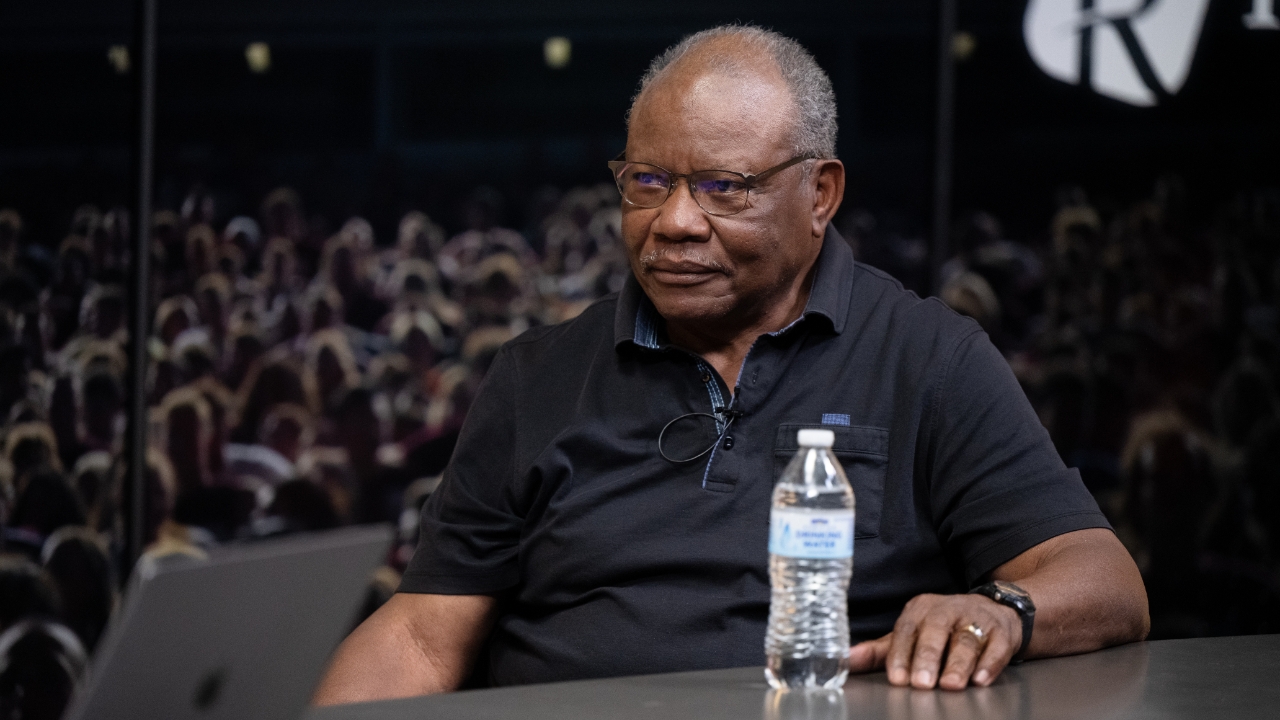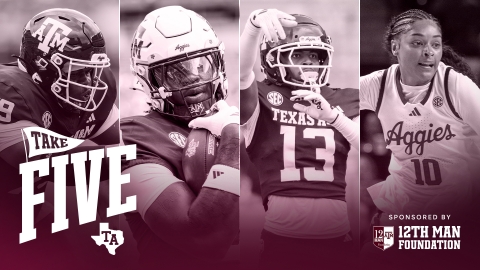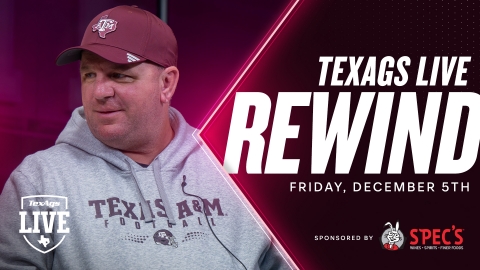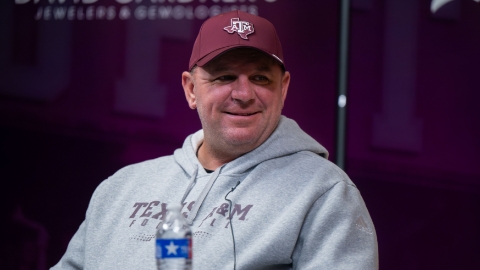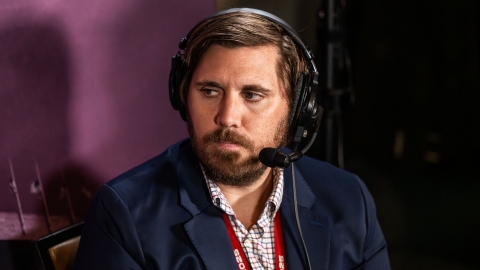Aggie football trailblazer and legend Hugh McElroy joined TexAgs Live on Tuesday to detail his journey to becoming Texas A&M football's first African-American starter, as well as the upcoming premiere of "Breaking Tradition: The Hugh McElroy Story" on Oct. 23.
Key notes from Hugh McElroy interview
- This process took a lot longer than I thought it would. I have to refer back to something Jamie McCoy said earlier today. Life has a way of presenting things to you that you don't expect and, often, that you don't deserve. If it's yours to have, life will find a way to get it to you. That is how this happened.
- In the trailer's opening scene, I say, "I never intended to be a star athlete. It was all an accident." Except, there are no coincidences, of course.
- I will never forget. Gabe Bock and I were sitting together in his truck. He asked what I thought about doing this. I had no idea what he was talking about. He said it would be about my life and story. I thought after I read it, I would ball it up and throw it away. He said, "No, I am not talking about an article." We got to talking about it, and I thought, “Sure, why not?” I had no reason not to want to do that, so we proceeded.
- A lot has changed since I played. Although football is the backdrop of the documentary, when I saw it for the first time, I realized it wasn't all about football. When it was all put together, football had a place, but it was not the premier place.
- There was a long-held belief in the family that my grandpa was a Buffalo Soldier. Except when we went to the Buffalo Soldiers National Museum, they did not have a record of it. We pulled out our archives. They did their research. We presented it to the museum. Within a week, he was on the website. He had all the history. He fought in the Spanish-American War and World War I. He was in the Rough Riders and helped capture Pancho Villa. He won the French medal for bravery. We took it at face value and then were taken aback when he wasn't in the records. When they saw the overwhelming evidence, that changed.
- I did not set out to be the first African-American to start a game at Texas A&M. I knew after I started that I was the first. I always have to give Sammy Williams and J.T. Reynolds credit. They were on the team before I was. I was texting Sammy the other day and told him that I felt like I stood on the shoulders of giants. Even though they did not start, they got limited playing time on special teams mostly. Whatever they dealt with in the locker room, I can't say I could have done that by myself. I always have to give them credit.
- The best compliment I have gotten is one time when I said I was just in the right place at the right time. The person said that it was only because it was the right person. Wow. I had never heard that. It made me feel good. I have used that with other people.
- The bonds that I have built are what this university is all about. That is where all the camaraderie in the Corps of Cadets starts. We all had hard times, but we had them together. We pulled each other through. I was talking to Curtis Mills, my roommate, the other day. He had a lot to do with me even being in the athletic department. That is a story in itself.
- Olin Buchanan and I were talking about this. Yes, I ran track, but also no. There was a time when we ran yards instead of meters. I graduated high school in 1967 and ran a 9.6 100-yard dash, which was admirable. At my high school, the coach told me he could find that in any PE class. I couldn't even make a relay team. They had me trying to pole vault. That was back when the poles didn't bend.
- I had been accepted to Texas A&M as a student. I had two high school classmates who had accepted track scholarships. The summer before we enrolled in 1967, we rode up to the school together to look around and meet other track recruits. Curtis Mills was a part of that. For those who don't know, he was the crown jewel of that recruiting class. Everyone in the country wanted him. He broke the world record in the quarter-mile his sophomore year.
- Just before school started, coach Charlie Thomas called Mills and asked who he wanted to be his roommate. He said Sidney Chachere or Edgar Harvey. Coach Thomas said they had been friends all their lives and would probably room together. Mills said I was his second choice. Thomas said, "Who is that?" They told Mills that they weren't recruiting anyone by that name and that I could not stay in the track dorm if I were not on the track team. Mills really wanted to go to A&M, but he really wanted me to be his roommate. Coach Thomas said he did not have a scholarship for me, but he offered to let me throw the javelin to stay with Curtis Mills. I gave it a try. Then, I started running wind sprints, and it became obvious I needed to do something else, so I became a sprinter.
- The first meet of the season, I pulled my hamstring. That took care of me having to run track. In the spring, I was out in front of the dorm, and we were playing football. Someone told me I should go out for the football team. I went out and hurt my leg again. It was suggested that I not come back out for two-a-days because I was wasting my time. The next year, I was playing football in front of the dorm again. Someone told me to go out for the team again. I went out again, and this time, it stuck. My first season would have been 1969. After that year, I got a scholarship.
- I picked A&M because of my grandpa. He was a military guy. All of his sons, including my dad, were in the military. For me, it would have been like going into the family business. My grandpa called A&M “West Point on the Brazos,” and when he found out I was accepted, it was like the skies opened up, and God said it was going to happen. That's why I came here.
- In my mind, there are no coincidences. I can't imagine how life would have been had this not happened because it has opened so many doors.
